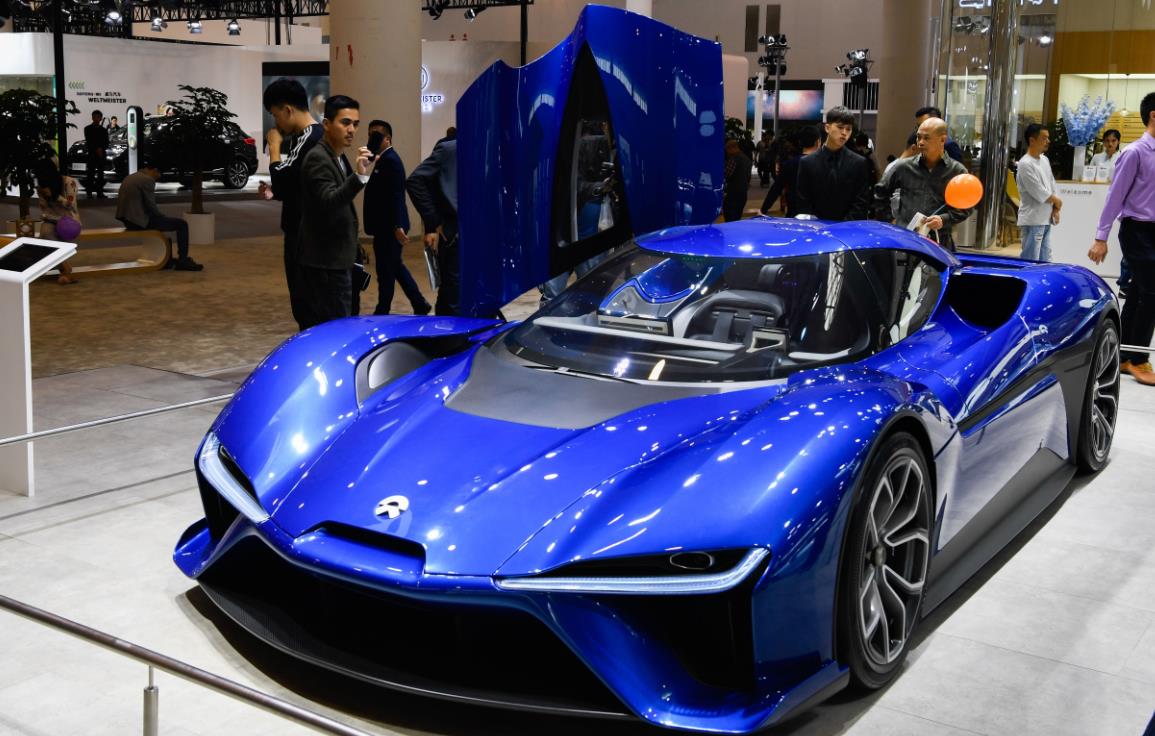Fires spur automakers to reconsider safety

Nio and Tesla among high-profile car companies plagued by more than 40 smoking incidents since last year
The safety of new energy vehicles should be an area of increased focus by automakers and governments as several recent fire incidents have had negative effects on industry development and customer confidence, industry analysts said.
The latest incident came Thursday, as an ES8 model of Chinese electric vehicle startup Nio became engulfed in smoke at an underground parking garage in Jiading district, Shanghai, where the startup automaker is headquartered.
Nio launched an investigation, but the results of the incident haven't been released yet.
Thursday's incident was not the first ES8 blunder.
On April 22, another ES8 model caught fire in Xi'an, Northwest China's Shaanxi province.
On April 30, Nio made a statement via its official Sina Weibo account that the incident resulted from a short circuit of its internal battery package after the vehicle was struck in chassis impacts.
Another popular NEV model, from the United States electric carmaker Tesla, the Model S has been involved in three recent fires in Shanghai, Hong Kong and the US.
Early findings on the incident in Hong Kong showed only a few battery modules-a cluster of smaller cells - were affected, and that the majority of the car's battery pack was undamaged, according to Tesla.
On Wednesday, Tesla said in a statement the company is revising charge and thermal management settings on its Model S and Model X vehicles via an over-the-air software update to help further protect the vehicles' battery life. The carmaker said it will continue investigating causes of battery malfunction.
The frequent fire incidents have prompted the ire of the Chinese government.
Last week, Xin Guobin, vice-minister of industry and information technology, said car manufacturers must improve the safety of NEV batteries and take effective measures to eliminate dangers.
The government will accelerate the establishment of a comprehensive safety guarantee system to improve the quality of NEVs. Carmakers should strengthen the research and development of safety technology, Xin advised.
More than 40 fire-related incidents involving NEVs were recorded in China and 135,700 units were recalled last year, according to the State Administration for Market Regulation, which released more stringent rules for NEV recalls in March.
The country is now the world's largest NEV market, with sales totaling 1.26 million units last year. That's a jump of 61.7 percent year-on-year, according to the statistics of the China Association of Automobile Manufacturers.
China is giving preferential policies to NEV customers and carmakers to combat pollution.
Yale Zhang, managing director of Shanghai-based consultancy Automotive Foresight, said the fire incidents had a negative impact on the NEV industry and customers' purchase motivation.
He said NEVs are increasingly using high-density lithium batteries to extend their ranges, while failing to take safety concerns into account.
John Zeng, managing director of forecasting and marketing consultancy LMC Automotive Shanghai, also said the industry needs to find a compromise between long range and safety.
"The governmental subsidies for NEV have high requirements on battery density and NEV ranges, but the unintended effect is compromised safety," Zeng said.
Volkswagen launched e-golf in European countries with mileage within 180 kilometers, because they chose batteries with low energy density, considering the safety of the vehicles, Zeng added.
The Nio ES8 has range of 335 kilometers and the Model S has 550 kilometers, according to their official statistics.

